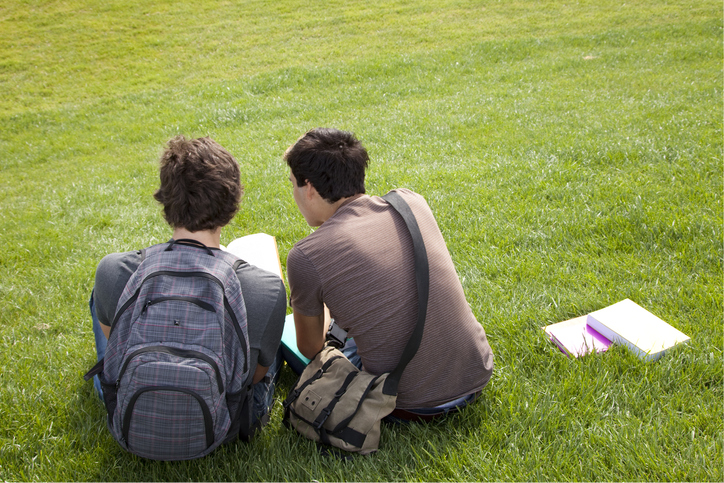Sexual exploitation
Child sexual exploitation (CSE) is a type of sexual abuse in which children and young people are sexually exploited for money, power or status.
This content has been written for children and young people. If you’re looking for information for over 18s, visit our Types of Crime information about image-based sexual abuse.
Some people form relationships with children and young people to use them for sex. People who do this may want you to think they are your friend, or your boyfriend or girlfriend. They want to gain your trust to get power over you. They might also use bribes, threats, humiliation and even violence to get power over you.

Children or young people may be tricked into believing they’re in a loving, consensual relationship. The person who is exploiting you may well give you gifts, treat you as an adult, and be very friendly to you to gain your trust. This can happen face-to-face or online.
Once they have gained your trust, they will begin to exert their power over you. In some situations, an abuser will give a child or a young person gifts (such as food, alcohol, drugs or cigarettes) if they take part in sexual activities with them or other people. In other situations, the abusers will be more affectionate to a young victim if they take part in sexual activities, or use threats, violence or humiliation if they refuse to take part.
Young people can be trafficked into the UK from other countries for sexual exploitation. Some young people also get trafficked within the UK. Some young people can become victims of sexual exploitation through gangs – this can be through rival gangs or members of their own gang.
Sexual exploitation is a crime that happens to boys and girls, and it can be really hard to spot. Often people think they’re in a good relationship, even after things have turned bad. But there are warning signs. It’s really important that you know how to spot them so you can protect yourself and your friends.
The Thinkuknow website has put together five warning signs that may help you to work out if someone is exploiting you in your relationship:
They give you lots of attention. We all like attention and it’s nice to feel wanted. But if someone tries to get to know you by giving you lots of attention, ask yourself – what do they really want?
They give you gifts like phone credit, alcohol or drugs. This can be exciting and make you feel good about someone, but if they want sex in return they are trying to exploit you.
They try to isolate you from your friends or family. They will say that they are the only person you need. They might tell you that your friends or family won’t understand or you’ll be in trouble. Remember, the people who care about you will want to protect you.
They have mood swings. If someone flips between being nice and nasty, you can feel like you need to do things to keep them happy. This can be a sign they are trying to control you.
They control you with promises and threats. Abusers use many tricks to control young people. They may make promises they can’t keep, ask you to keep secrets or threaten you. Some become violent.
If you are a victim of child sexual exploitation, the pain of what you’ve been through (and the fear that you might not be believed) can make it very difficult and scary to tell people what has happened. But talking to someone about what you’ve been through can make it easier to deal with, and make sure that the sexual abuse stops.
Whatever you are worried about, remember that it’s not your fault and you haven’t done anything wrong. Some things you can do are:
- Tell an adult you trust – this could be a teacher, a family member, your youth worker, social worker or support worker. It can be difficult to know how to have this conversation, so we have some tips on asking for help.
- Think about reporting what has happened to the police; they should take your complaint very seriously, and ensure that you are referred for further support.
- With a safe adult, you could develop a safety plan that would help you choose how best to keep yourself safe.
- Talk to your friends. A good friend will listen to you and may help you speak to an adult.
If you are worried about a friend, we have some tips on how you can start the conversation and get them the right help.
Victim Support’s Children and Young People Services – you can contact your nearest Victim Support office, call the 24/7 Supportline, contact us via live chat, or if you are 16 or older, you can create a My Support Space account. This is a free, safe and secure online space where you can work through interactive guides to help you move forward after crime.
Rape Crisis – information and support for women and girls who have been raped or experienced sexual violence: 0808 802 9999.
Childline – 24-hour support for young people, both on the phone and through online chats and message boards, on rape, sexual assault and a range of other issues: 0800 1111.
The Mix – support for under 25s on a whole range of issues, including rape and sexual assault as well as safe sexual relationships. Get confidential help by email, text, webchat or phone: 0808 808 4994.
Thinkuknow – information for children and young people on sex, relationships and the internet.
#SaySomething – call or text 116 000 for confidential information and advice if you’re feeling pressured into having sex with someone or your boyfriend isn’t treating you right. Calls and texts are free and lines are open 24/7.
